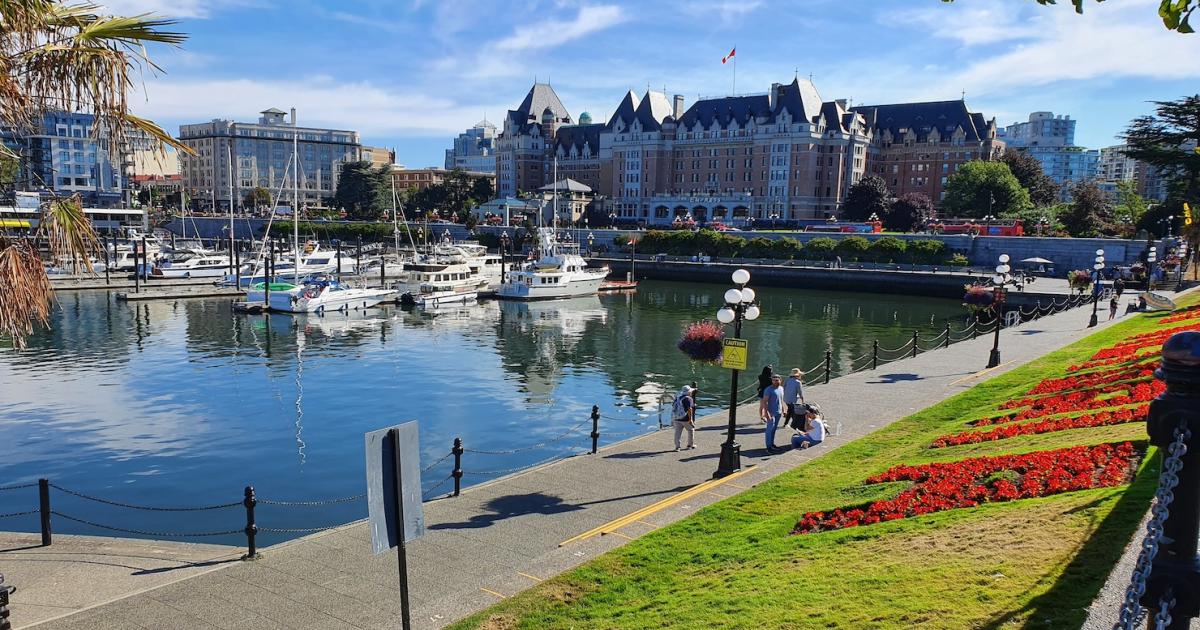Sustainable tourism’s mission is to lower the negative social and environmental impacts of travel and vacations. That was only a small part of the discussions at the IMPACT Sustainability Travel and Tourism conference in Victoria, British Columbia in January. The main discussions both onstage and off were about “regenerative hospitality,” a reframing of sustainable tourism towards solutions that heal the damages done to our environmental, social and economic systems. This evolution in language reflects the industry’s shift to doing more good than just less harm, and was seen throughout the project examples shared at the conference.
This shift towards a net-positive impact is occurring throughout sectors; however, hospitality may have a uniquely valuable role in creating the holistic system change we need to address social inequity, environmental unsustainability and economic slowdown.
The tourism industry, which contributes around 10 percent of global GDP, sits at the intersection of most other major industries. It centers around travel, which requires transportation, including cars, planes, boats and trains; multi-day trips include accommodations — hotels, resorts and short-term rentals of homes and apartments. Tourism is rooted in experiences, including local shopping, dining, entertainment and all manner of other services. And it produces around 8 percent of global greenhouse gas emissions.
The work of the tourism industry, often led by destination management organizations (DMOs), is to create places that people want to visit. DMO’s are the organizations that often put together ads that encourage viewers to visit a local city or foreign country and they work with local companies to improve the attractiveness of the destination they represent. DMOs are in a unique position to inspire a vision for the places they serve that increases their social, environmental and economic value. The value of tourism itself is created through the unique combination of a place’s culture, nature, scenic beauty, architecture and history.
“The people who are drawn to and dedicated to hosting and hospitality have a unique vantage point,” said Michelle Holliday, a keynote at IMPACT and a leader in regenerative thinking. “Who else is tapped into every aspect of a community — its history, character, geography, culture, people, infrastructure, government systems, patterns of commerce, civic institutions, legal structures and more? Who else works from love for the wholeness and life of that place? There’s such power and potential for system change in that combination of perspectives and relationships.”
Experiencing the impact of regenerative hospitality
Attending IMPACT in Victoria’s Inner Harbor provided an experience of this kind of regenerative project.
Eddie Thomas Jr., a member of the local Esquimalt Nation, joined the panel I moderated on Place-Led Development to share his experience working with the The Greater Victoria Harbour Authority on projects in the Inner Harbor to celebrate the history and culture of the Esquimalt Nation. The art, signage and programming projects are found throughout Victoria’s tourist center.
I asked a random tourist, Roger, what he thought about the First Nations: “I had never thought of them at all, until this morning as I walked along the harbor.”
To make this type of regenerative project work, you have to slow down and take the time to engage the local community. Another member of the Esquimalt Nation that attended our session shared how their community always has difficult conversations over meals. The act of eating while in discussion helps focus the attention on listening to others.
Slowing down can seem antithetical to the urgency of addressing our societal woes, but the result is that we spend our time focused on things that are truly transformative. And it helps mitigate the risk that we create new problems while trying to fix existing ones.
‘We need a bigger story’
“We need a bigger story,” said Holliday. That story sets the culture for how we convene. The story of regenerative hospitality is about working together as a living system to host destinations as a dynamic community. In this capacity the tourism industry offers a possible way to engage and inspire a regenerative future. In these challenging times we all need a dose of inspiration, and I was grateful to find it in the hosting community that came together at IMPACT this year in the ancestral lands of the Esquimalt Nation.
Here are some additional readings on regenerative hospitality recommended by Holliday.










